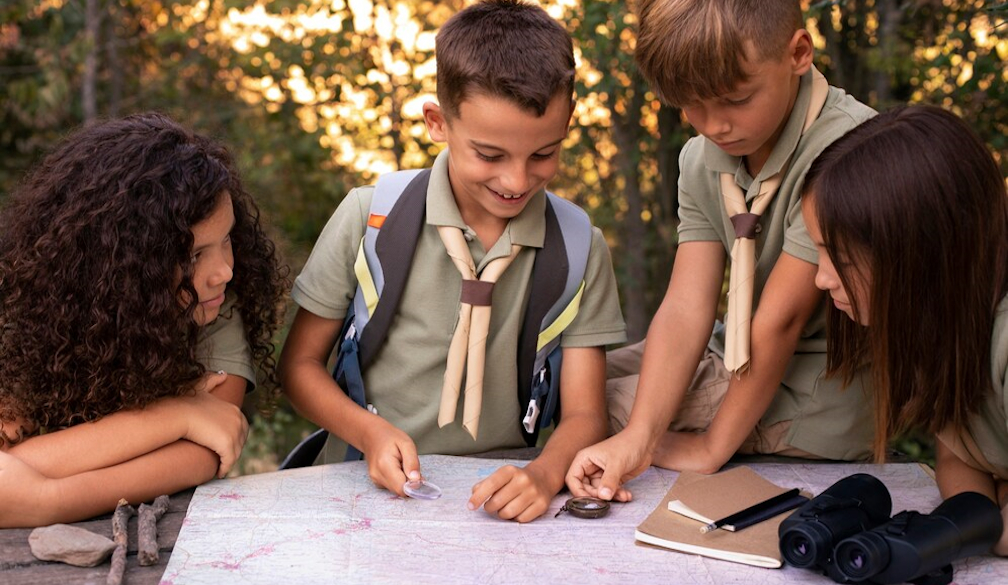Beyond the Classroom: How School Excursions Enhance Learning

The educational landscape is constantly evolving, with newer methods being developed to enhance student understanding and engagement. Among these innovative approaches, school excursions stand out as a crucial tool, offering much more than just a break from the traditional classroom environment. These outings not only enrich the curriculum but also foster a better understanding of course materials by connecting theoretical knowledge with real-world applications.
The Educational Benefits of School Excursions
A. Real-World Learning
School excursions are a gateway to the real world, serving as a bridge between textbook knowledge and its practical applications. For instance, a visit to a historical site can bring to life the events students have read about, offering a new perspective that is difficult to convey through pictures or words alone. These experiences help students perceive the relevance of their studies to the world beyond their textbooks, enhancing their understanding and retention of knowledge. Interactive activities provided by facilities like AQWA Education Groups, allow students to engage directly with the subject matter, encouraging deeper learning and curiosity.
B. Enhanced Engagement and Motivation
An excursion is often seen by students as a highlight of their academic year—not only for the novelty it presents but for the refreshing change in the learning environment. This break from routine can reignite motivation among students, particularly those who might not be fully engaged in a conventional classroom setting. The sensory experience of a new setting can stimulate learning, making students more attentive and eager to explore the subject matter. The anticipation of a school excursion can also lead to increased participation in related classroom activities, serving as an excellent tool to boost engagement across the board.
C. Development of Social Skills
Beyond academic enrichment, school excursions play a significant role in the development of key social skills. Interaction with peers in a new environment can help students build communication skills, teamwork, and empathy. It also offers them a chance to manage responsibilities and make decisions in a controlled yet unfamiliar setting. Such social interactions and the opportunity to navigate new social contexts can be particularly beneficial for personal growth, helping students develop confidence and social competence.
Maximizing the Learning Experience During Excursions
A. Pre-Trip Preparation
To maximize the learning potential of a school outing, effective pre-trip preparation is essential. This includes briefing students on what to expect during the excursion, any relevant background information about the place being visited, and what educational goals the trip aims to achieve. Teachers can engage students in preparatory activities that stimulate curiosity and set learning targets, making the excursion not just a field trip but a fully integrated part of the curriculum. Such preparation makes the experience more meaningful and ensures that students are intellectually and emotionally invested in the journey they are about to undertake.
B. Activities During the Excursion
The activities undertaken during the excursion itself are critical in cementing the students' learning. Educators can facilitate this by organizing structured activities such as scavenger hunts, guided tours with experts, or interactive workshops. These activities should be designed to complement the students' existing knowledge and push them to inquire and think critically about the subject matter. Direct engagement with the environment or subject enhances retention and understanding, as students are not just passive observers but active learners navigating their educational pathway.
C. Post-Trip Activities
The learning from an excursion should not end when the students step off the bus back at school. Post-trip activities are crucial for helping students process their experiences and reinforce their learning. Discussions, projects, or presentations based on their observations and learnings can provide avenues for reflection and deeper understanding. These activities ensure the information learnt is not only retained but also appreciated in its broader context, helping students make connections between their experiences and the curriculum.
Conclusion
School excursions are an exceptional educational tool, providing a dynamic environment for active learning. Beyond the immediate excitement and break from routine, these excursions deeply enrich the educational journey of students, promoting better engagement, understanding, and retention of knowledge. They also play a significant part in developing important social skills and preparing students for real-world challenges. With careful planning and thoughtful implementation, school excursions can transform theoretical knowledge into a vivid and impactful educational experience that extends well beyond the boundaries of a classroom.





